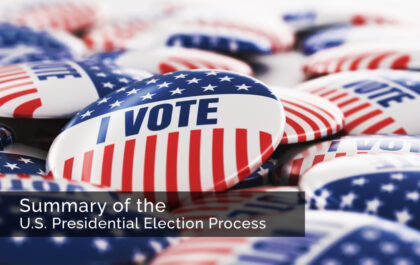Managing debt can be a significant challenge for many individuals and families, especially those dealing with high-interest credit card debt, medical bills, or other unexpected expenses. Sometimes, debt can become unmanageable, leading to financial hardship and stress. The potential strategy- debt negotiation is for managing debt, but it’s essential to carefully evaluate whether it’s the right choice for your financial situation. It can be an effective option for those struggling with unmanageable debt. But when is it the right choice? This article will explore the financial planning perspective of when to consider debt settlement.
Table of Contents
The Pros and Cons of Debt Settlement
Debt settlement is a strategy that involves negotiating with creditors and settling a debt for less than the full amount owed. Typically, it is an option for those severely delinquent on their debt payments or who have experienced a significant change in their financial situation.
Before considering debt settlement, it’s important to understand the pros and cons. It can reduce the overall debt owed, making it easier to manage. It can also resolve debt problems faster than debt relief strategies, such as debt consolidation. On the other hand, debt settlement can negatively impact credit scores and result in tax consequences. Additionally, not all debts can be settled, and not all creditors are willing to negotiate.
When to Consider Debt Negotiation
Severe Financial Hardship
If you are experiencing severe financial hardship, such as a job loss, medical emergency, or other unexpected financial burdens, debt settlement may be a viable option. In these situations, it may be difficult or impossible to keep up with debt payments, and negotiation can provide a way to resolve debt quickly and reduce the overall amount owed.
High Debt-to-Income Ratio
Suppose you have a high debt-to-income ratio, meaning that your monthly debt payments are a significant portion of your monthly income. In that case, debt settlement may be a way to reduce your debt burden and improve your financial situation. However, it’s essential to carefully consider your ability to make any settlement payments, as failing to make payments can result in further financial hardship.
Little to No Savings
If you have no savings and are struggling to make debt payments, negotiation may be an option. Remember, it requires a lump sum payment, so it may be necessary to save up before pursuing this strategy.
No Other Viable Options
Mediation may be worth considering if you have explored other debt relief strategies, such as debt consolidation or credit counselling, and they are not viable options for your financial situation. However, it’s important to evaluate all options and work with a reputable company carefully.
Potential Alternatives
While debt settlement can be an effective strategy for managing debt, other options exist. Other potential alternatives include debt consolidation, credit counselling, and bankruptcy. All options have pros and cons and are best suited for different financial situations. It’s important to carefully evaluate all options and work with a financial advisor or credit counsellor to find the best option for your situation.
The strategy of debt negotiation can effectively resolve unmanageable debt, but there are better choices for everyone. Before considering a settlement, it’s important to understand the pros and cons and carefully evaluate your financial situation. If you are experiencing severe financial hardship, have a high debt-to-income ratio, have little to no savings, or have explored other debt-relief options to no avail, debt settlement may be a viable option. However, it’s essential to work with a reputable company and carefully consider the impact on your credit score and potential tax consequences. With careful consideration and planning, settlement can provide a path to financial freedom.
Related posts
When was the first presidential election in the US?
The election process in the world’s most powerful nation, the US, has come a long way. Various amendments have been made to the Constitution that allowed black men, white women and other disadvantaged groups to participate in the elections. Further amendments during the 60s and…
Tips & Trick For Healthy Glowing Skin
Lorem ipsum dolor sit amet, consectetur adipiscing elit. Nam laoreet, nunc et accumsan cursus, neque eros sodales lectus, in fermentum libero dui eu lacus. Nam lobortis facilisis sapien non aliquet. Aenean ligula urna, vehicula placerat sodales vel, tempor et orci. Donec molestie metus a sagittis…
My Fight With Depression. Concussions
Lorem ipsum dolor sit amet, consectetur adipiscing elit. Nam laoreet, nunc et accumsan cursus, neque eros sodales lectus, in fermentum libero dui eu lacus. Nam lobortis facilisis sapien non aliquet. Aenean ligula urna, vehicula placerat sodales vel, tempor et orci. Donec molestie metus a sagittis…
Top 10 most visited tourist places in the world
Lorem ipsum dolor sit amet, consectetur adipiscing elit. Nam laoreet, nunc et accumsan cursus, neque eros sodales lectus, in fermentum libero dui eu lacus. Nam lobortis facilisis sapien non aliquet. Aenean ligula urna, vehicula placerat sodales vel, tempor et orci. Donec molestie metus a sagittis…
How Digital Health Technology Is Beneficial?
Digital health revolves around the usage of diverse technological platforms including mobile health, teen health, configurable remote patient monitoring, etc to improve the connection between the patients and the doctors. Across the healthcare system, the horizon and scope of digital health have helped create opportunities…
How Latest Farmtrac Tractors are Improving Farming in India?
India mostly relies on farming, and a large part of the population depends on it for their livelihoods. Recently, there’s been a big shift towards using modern farming techniques and machinery to make farming more productive and efficient. A good example of this is the…
Dispelling Myths: Demystifying Rx Waste and Expiration Dates – WasteX Pharmaceutical Waste Disposal Separates Fact from Fiction
The specter of “expired” medication looms large, conjuring images of potent chemicals wreaking havoc on water sources and ecosystems. But before you panic toss that bottle of pills, let’s delve into the truth about pharmaceutical waste and expiration dates, separating fact from fiction. At WasteX…
Sustainable Living in Memphis: Green Initiatives and Eco-Friendly Hotspots
Memphis, a city known for its rich cultural heritage and vibrant atmosphere, is increasingly becoming a hub for sustainable living. As environmental awareness continues to grow, residents and businesses in Memphis are embracing green initiatives and fostering eco-friendly practices. Let’s explore the city’s commitment to…
Today's pick
Hot topics
Stay connected
Meet the Author

Gillion is a multi-concept WordPress theme that lets you create blog, magazine, news, review websites. With clean and functional design and lots of useful features theme will deliver amazing user experience to your clients and readers.
Learn moreCategories
- Animals (7)
- Apps & Softwares (8)
- Automotive (8)
- Beauty (8)
- Business (141)
- Cars (12)
- Cartoon (3)
- Cook (4)
- Cooking (1)
- Design (8)
- Economy (6)
- EDUCATION (25)
- Entertainment (16)
- Fashion (23)
- Fitness (2)
- Food (16)
- Gaming (51)
- Guide (20)
- Health (119)
- Home (52)
- Home improvement (12)
- Interior (3)
- Law (16)
- Life (1)
- LifeStyle (99)
- Marketing (5)
- Motivation (9)
- Movie (6)
- Movies (1)
- Music (3)
- News (8)
- Painting Art (1)
- People (15)
- Photography (7)
- Review (113)
- Services (7)
- Social Media (6)
- Sport (9)
- Sports (12)
- Style (10)
- Swimming (1)
- Tech (125)
- Travel (26)
- Uncategorized (17)
- Vape (5)
- Western (3)
- World (2)










